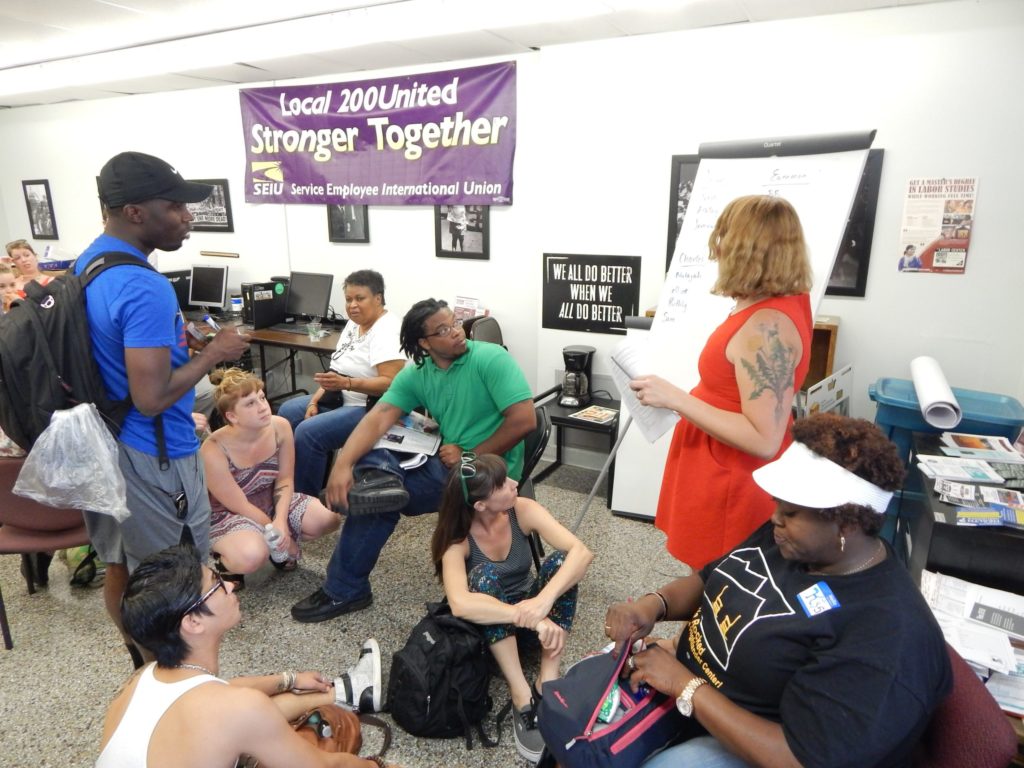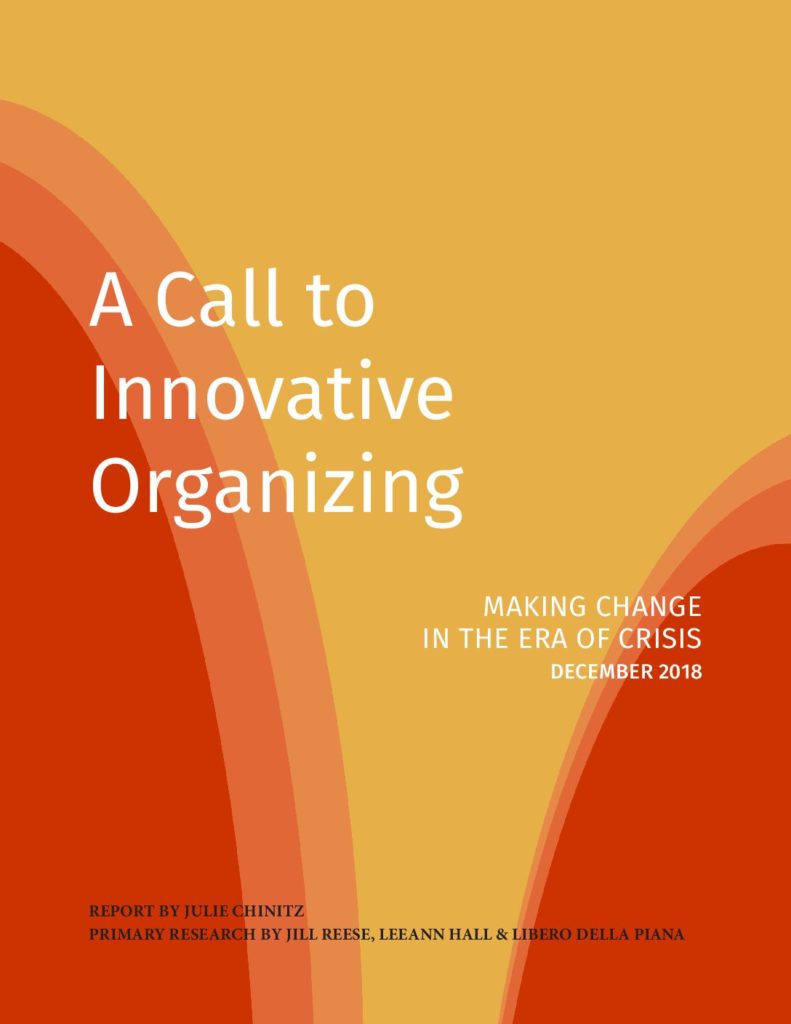
Organizing is what we do.
At its most basic, organizing is uniting people for a common cause. There are universal and timeless principles of organizing. There are also countless variations, models, and specific applications of organizing. We embrace the broad traditions of organizing in the U.S. and around the world. Effective organizing requires learning from yesterday’s social movements and implementing today’s innovations.
Organizing is one of many approaches to social change. But organizing is special.
Organizing recognizes that power is essential to making change. It’s not enough to be right. Communities can only get what they need when they have the power to achieve it.
There are eight essential aspects of organizing:
- Organizing builds organizations.
- Organizing builds a base of people directly impacted by an issue.
- Organizing builds leadership from its base of impacted people.
- Organizing aims to solve the immediate problems faced by the base.
- Organizing also aims to shift power relations.
- Organizing aims to dismantle systems of oppression — like systemic racism and sexism.
- Organizing uses nonviolent direct action and other confrontational tactics to leverage power.
- Organizing has its biggest impact when it’s part of broad social movements.
